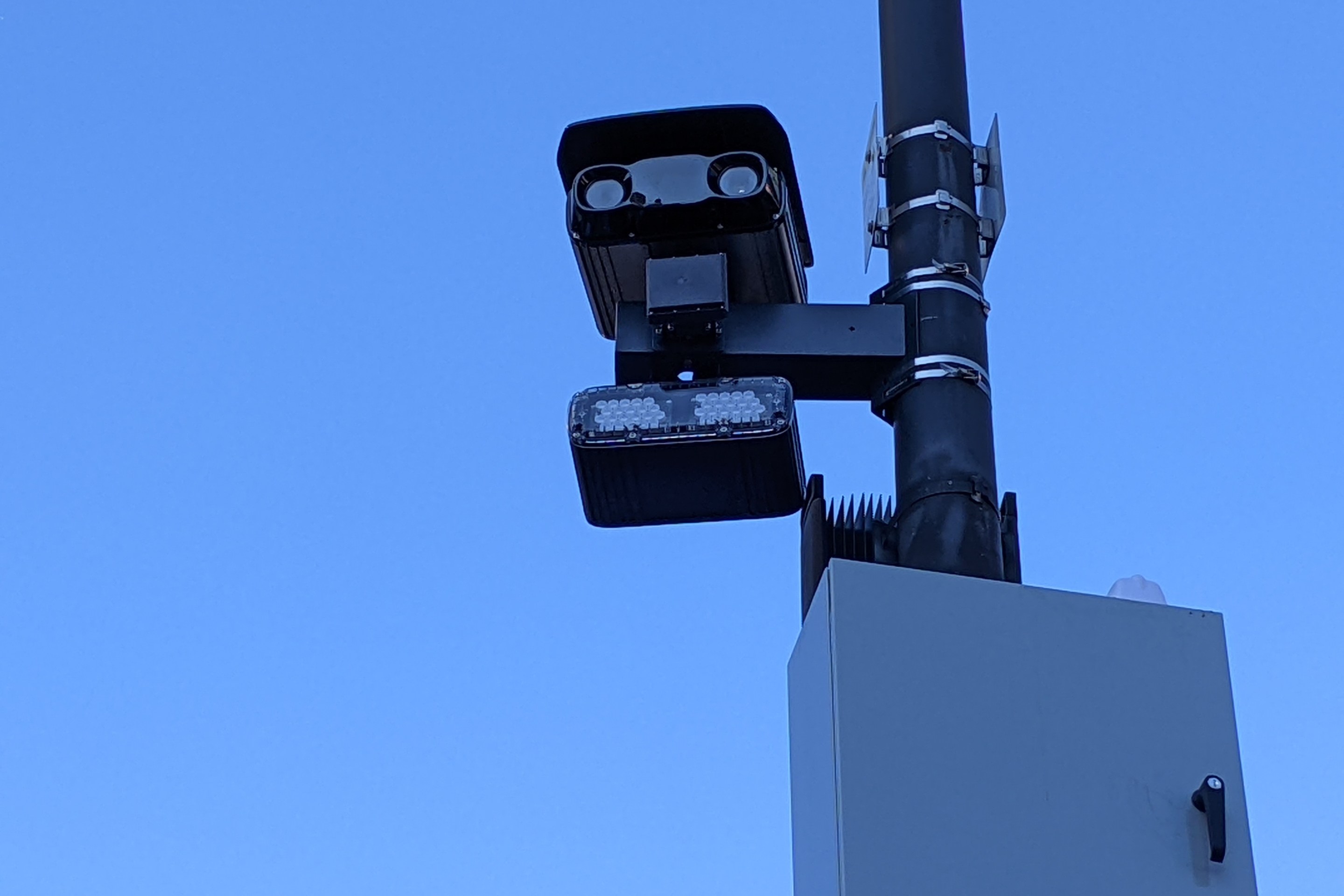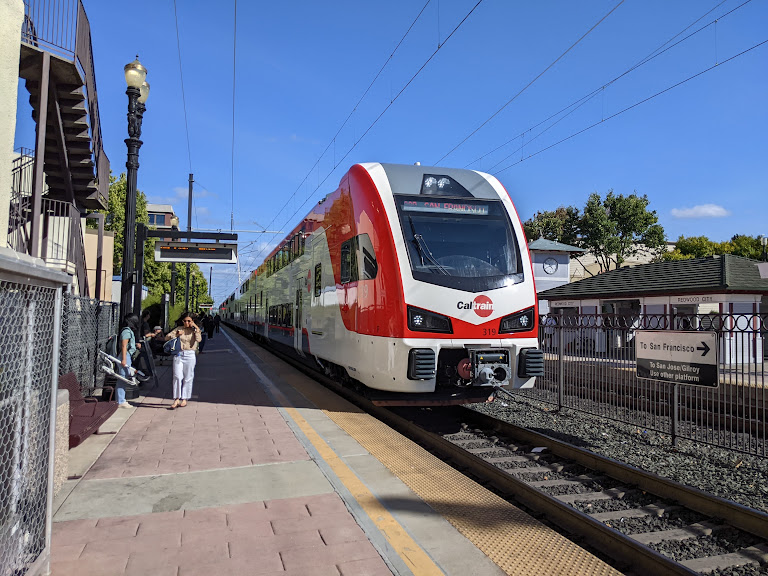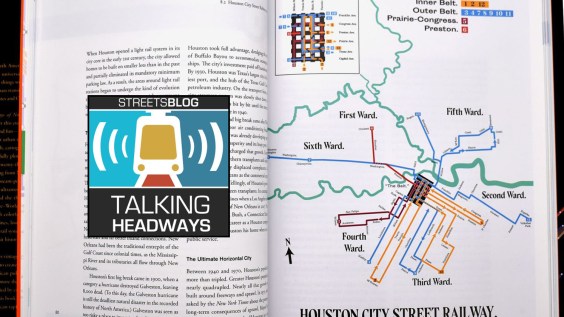 Image: SkyTran
Image: SkyTranSome of you saw the Examiner piece yesterday about SkyTran's personal rapid transit (PRT) project and were probably looking for a response from us (one of you even asked in comments why we didn't touch it), but I've been very leery of the topic since I saw the "Pod People" post over on New York Streetsblog blow up with 227 polarizing and dogmatic comments for and against PRT (Personal Rabid Transit?), before the editors shut comments down. I'm pretty skeptical of anything taken on faith as good or bad, so why get into the fray, especially with a technology that hasn't been proven at scale?
Then there's my personal bias against the aesthetic clutter that would ensue with multi-level guideways two stories high running down quiet residential streets to whisk people to their front doors? I don't know about you, but I like walking those quiet streets and looking up at the sky.
And isn't a transit system that costs at least five times less than freeways and light rail called a bus? If the problem is competition with traffic from cars, then make a serious policy commitment to segregated roadways for buses. Or why not spend public money for innovations like bike-share, which would have the added benefit of keeping you healthy?
One of the issues the Examiner didn't touch in its promo for SkyTran was feasibility. Where in the world would the money come from to build a workable system less marginal than the monorail at Epcot Center?
"The most likely source of major public funding would be federal funds
that are targeted toward new rail projects," said Metropolitan Transportation Commission (MTC) spokesperson Randy Rentschler, whose agency would be responsible for finding public funds for PRT, should that ever be mandated by the public. He explained that the New Starts federal fund typically doles out $1.5 - 2 billion annually, though that goes to projects all over the country. In San Francisco, the Central Subway is one of the projects competing for the money, for example.
"On the hurdles faced by any [PRT] project: one
is basic math," added Rentschler. "The number of projects seeking significant money is
long and the ask is very large. Way more than is available. Also, the
way to look at this particular issue is that public money has a very
low tolerance for risk and favors the tried-and-true, so new ideas are
hard pressed to gain favor."
BART Director and general transit buff Tom Radulovich echoed Rentschler's comment about funding for a huge capital outlay and was skeptical of "silver bullet thinking," but did bring up an interesting angle on how the technology could benefit rail transit.
Some PRT supporters disdain rail, but there are aspects of PRT that could help improve rail transit – especially driver-less operation. More and more metro systems are going driver-less, which reduces operating costs overall, and changes the economics of transport. The main operating cost for most transit is the driver, and transit is most economical when one driver is transporting lots of people. To economize, transit agencies tend to want to run longer trains less frequently. Go driver-less, and the economics change; running three two-car trains costs just as much as one six-car train. Lille's VAL (automated light metro) operates like this; short, automated trains every 90 seconds. If BART were driver-less, we could run very short trains every few minutes during off-peak hours for the same cost as running longer trains less frequently.
So what do you think? And let's keep the sermons on topic, please.





